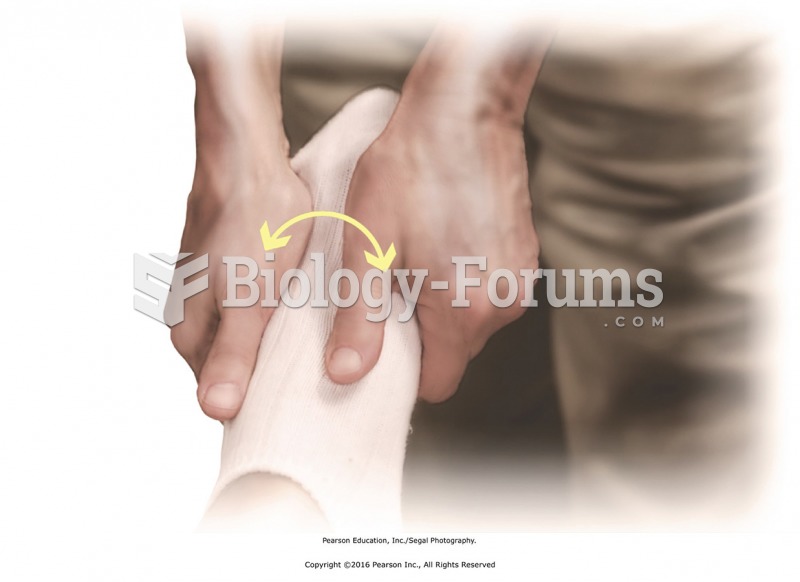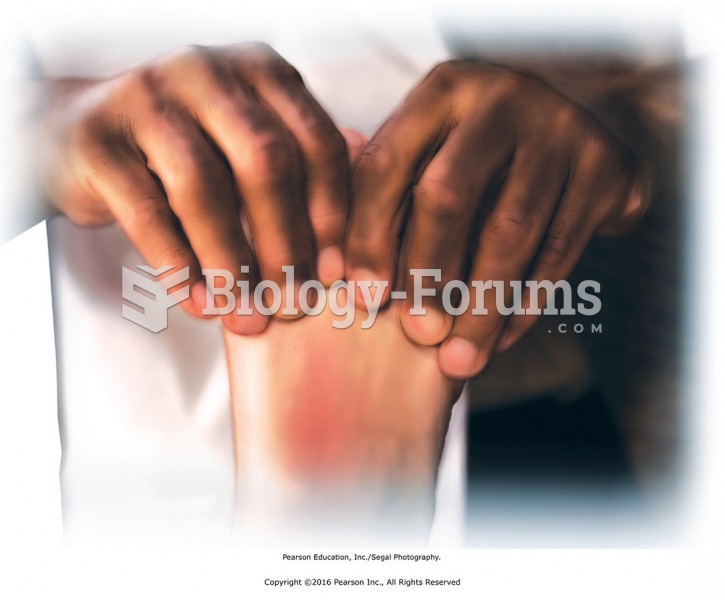This topic contains a solution. Click here to go to the answer
|
|
|
Did you know?
Limit intake of red meat and dairy products made with whole milk. Choose skim milk, low-fat or fat-free dairy products. Limit fried food. Use healthy oils when cooking.
Did you know?
The human body produces and destroys 15 million blood cells every second.
Did you know?
People about to have surgery must tell their health care providers about all supplements they take.
Did you know?
Your chance of developing a kidney stone is 1 in 10. In recent years, approximately 3.7 million people in the United States were diagnosed with a kidney disease.
Did you know?
More than 20 million Americans cite use of marijuana within the past 30 days, according to the National Survey on Drug Use and Health (NSDUH). More than 8 million admit to using it almost every day.
 For Gulf War veterans, lack of social support in the field is related to postwar depression. The ...
For Gulf War veterans, lack of social support in the field is related to postwar depression. The ...
 The steel lamination used in an E coil helps increase the magnetic field strength, which helps the ...
The steel lamination used in an E coil helps increase the magnetic field strength, which helps the ...





